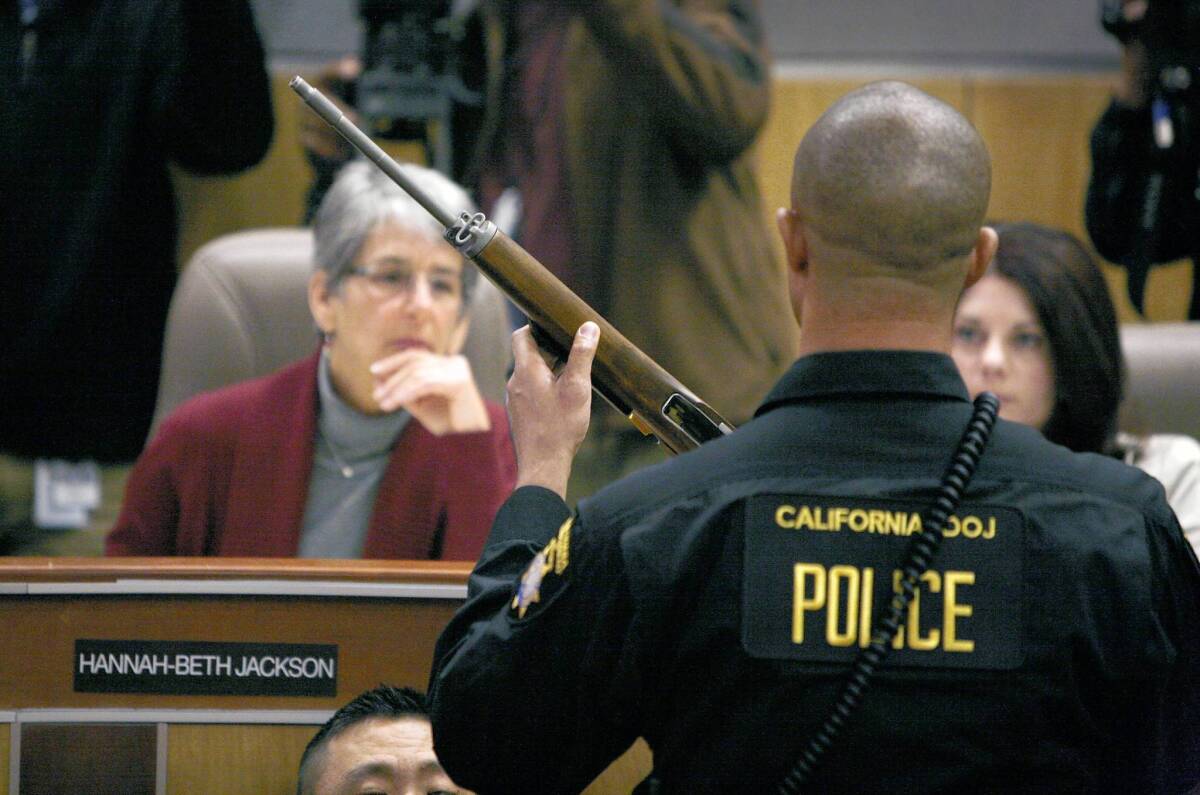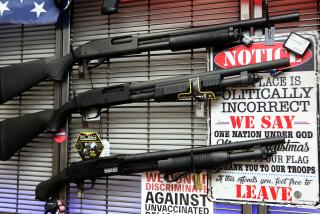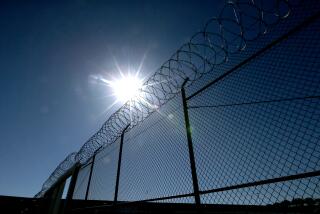California unable to disarm 19,700 felons and mentally ill people

- Share via
SACRAMENTO — California authorities are empowered to seize weapons owned by convicted felons and people with mental illness, but staff shortages and funding cuts have left a backlog of more than 19,700 people to disarm, a law enforcement official said Tuesday.
Those gun owners have roughly 39,000 firearms, said Stephen Lindley, chief of the Bureau of Firearms for the state Department of Justice, testifying at a joint legislative hearing. His office lacks enough staff to confiscate all the weapons, which are recorded in the state’s Armed Prohibited Persons database, he said.
The gun owners typically acquired the firearms legally, before being convicted of a felony or diagnosed with mental illness. Each year, the state investigates and seizes the guns of about 2,000 people on the Armed Prohibited Persons list, Lindley said, but each year about 3,000 names are added to the list.
“Despite our best efforts, the bureau does not have the funding or resources to keep up with this annual influx,” he told the 15 assembled lawmakers.
The testimony showed how some of the state’s strict gun laws have been undermined by California’s budget problems. Lindley said it would cost $25 million to hire enough staff to clear the backlog within three years.
Democratic Sens. Mark Leno of San Francisco and President Pro Tem Darrell Steinberg of Sacramento introduced a bill later Tuesday that would allow the Department of Justice to dip into funds collected when gun buyers pay a fee for background checks. There is a $20-million surplus in the account that could be tapped under the pair’s proposal, SB 140.
The extra money, which could help eliminate the backlog in as little as a year, “would be a very wise and worthy investment,” Steinberg said.
Lawmakers are considering a dozen proposals to curb gun violence after last month’s Sandy Hook school massacre in Newtown, Conn.
Some would be funded with levies on gun owners, such as a 5-cent tax on every bullet purchased. Legislation has also been drafted that would require ammunition buyers to provide a thumbprint and ID for background checks. Some lawmakers have suggested that the state lift a prohibition on cities and counties adopting their own, tougher gun laws.
Tuesday’s hearing was part business, part theater, with law enforcement officials displaying assault weapons and retired legislators testifying that they were harassed and intimidated by gun-rights advocates when they passed firearms-control laws in previous years.
Victims of gun crimes somberly recounted their stories.
Amanda Wilcox said she could not watch news footage of the Newtown parents, because it was too painful. In 2001, her daughter Laura, a college student, was shot to death in an office in Northern California by a mentally ill man with a semiautomatic weapon.
Wilcox, now an advocate with the Brady Campaign Against Gun Violence, urged lawmakers to enact stricter gun controls.
“We want to prevent firearm violence by keeping dangerous weapons out of dangerous hands,” Wilcox said.
During the public comment period, opponents of the new legislation took to the microphone to denounce the hearing as a platform for misinformed propaganda.
A proposal that gun owners be licensed and insured like motorists drew opposition from Sam Paredes, executive director of the advocacy group Gun Owners of California.
“There is a big question of whether you can license a constitutional right,” Paredes said.
More to Read
Sign up for Essential California
The most important California stories and recommendations in your inbox every morning.
You may occasionally receive promotional content from the Los Angeles Times.











